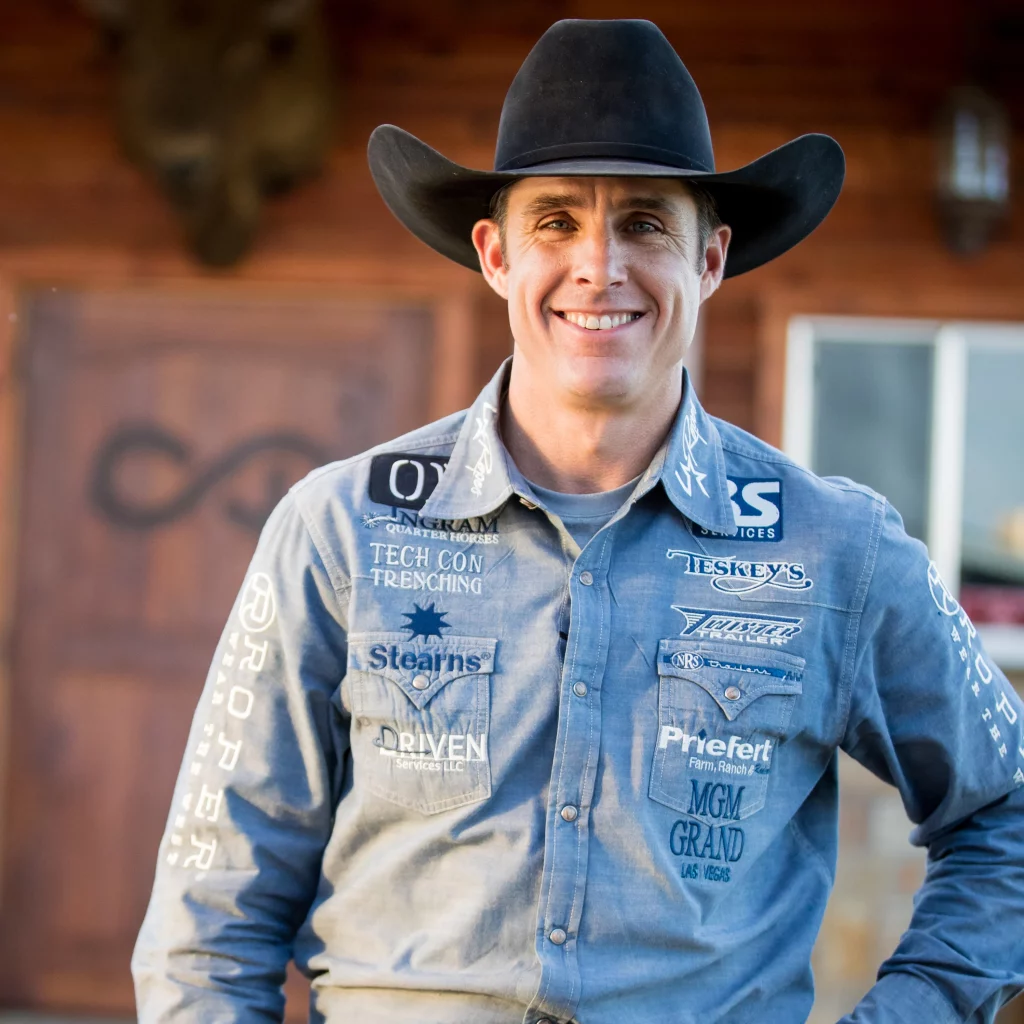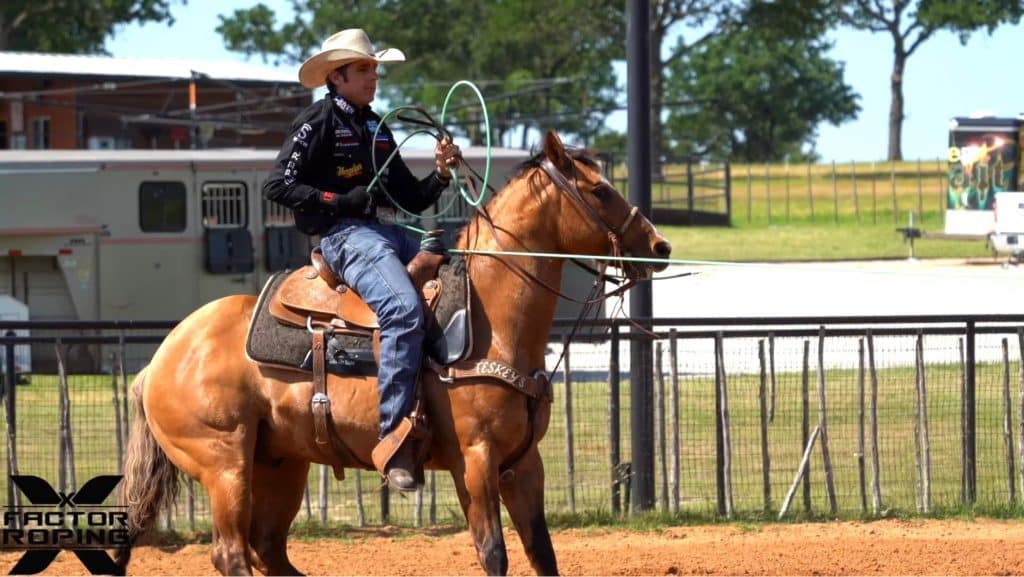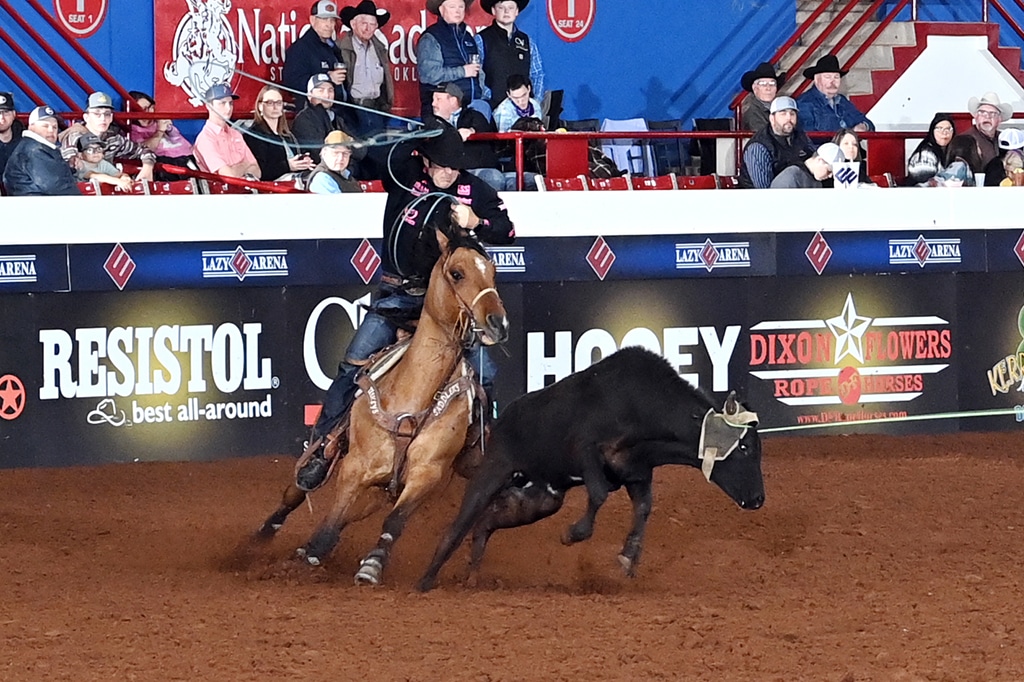World champion team roper Patrick Smith shares his unorthodox path to a lifelong love affair with roping and the lessons he’s learned along the way.
Andersen CbarC Photo
Equinety: Unlike many professional rodeo athletes, you did not grow up in the Western industry. How did you get your start in team roping?
PS: I grew up in Midland, Texas, but I lived in town. I was just like every kid there—I wanted to ride horses! Unfortunately, I didn’t know anything about riding, roping or rodeo. I was attending a private school that was too small to offer any sports teams when Stan and Lorilee McNerlin relocated from California and started offering riding lessons. They were team ropers, and when I saw them roping, I knew I wanted to learn. Stan and Lorilee are two of the greatest people to ever walk the planet. They started helping me, and I just fell in love. I was in love with roping before I ever knew I could rope for a living or make a career out of rodeo. The rest is history.
Equinety: What made you decide to pursue professional rodeo as a career?
PS: From the moment I started, I loved horses, swinging a rope, and having something to work at. As I got a little better, I started going to some ropings and jackpots. Once I won my first dollar, I was hooked. They say, ‘A dollar won is better than a dollar earned.’ And my dad has always said once you realize you can win money doing something like that, you’ll do just about anything in the world to make sure that’s how you’re making a living.

Equinety: What do you love most about team roping?
PS: Honestly, I think it’s a little bit of everything combined. I’m a competitive person, so I love that aspect of it. But I also love the Western industry as a whole, and I’m grateful my kids are growing up in it. There are so many opportunities to learn the importance of responsibility, especially when you transition from just owning a horse to owning a competitive athlete—keeping them sound and firing on all cylinders takes a lot of commitment.
Equinety: What is the best piece of advice you’ve ever received?
PS: I roped with one of my best friends on the planet, Trevor Brazile, for more than a dozen years. When I first started roping with him, he told me the only way to get better was to get a shorter memory. You have to develop the ability to walk out of the arena after you’ve dropped the ball and not let that failure defeat you the next time you try to compete. That applies to so many things in life. The thrill of victory sticks with you, but the sting of loss is so much more powerful. It will take you down if you let it. You have to learn to be mentally resilient.
Equinety: What advice would you share with someone who thinks they want to pursue a career in professional rodeo?
PS: Don’t listen to the noise of everyone else—don’t worry about what they’re saying or thinking. I have a 14-year-old daughter, an 11-year-old daughter, and a 9-year-old son. My eldest is taking an interest in breakaway, but right out of the gate she started feeling defeated because there are kids who have been swinging a rope since they were 3 years old. You think you’ll never catch up, but I was 17 when I started. I didn’t junior, high school or college rodeo—I went straight to the PRCA. I surrounded myself with people every day who were better. Just because you’re not there today doesn’t mean you can’t be there tomorrow. You get out of it what you put into it.
Equinety: Rodeo is full of peaks and valleys. How do you push through the hard times?
PS: First and foremost, I am a faithful man. I believe in God. I don’t believe in praying to win—if I could do that, I would have picked the lottery instead of rodeo—but I do believe God can direct my path. As long as I do my part and prepare, I can count on God to help me with the rest.

XFactor Roping source file
Equinety: You feel strongly about making sure your equine athletes have the best possible care. Why did you start using Equinety?
PS: I was introduced to Equinety in 2019 by Tyler Wade. My horses had several soft tissue injuries, so I reached out to try the product. I had never really been a huge supplement guy, but I honestly saw a significant difference in my horses’ recovery time and overall look and feel. I also have an 18-year-old stud horse, and we collect him every year. His count is higher than it’s ever been since we started him on Equinety. I won’t put my name on a product if I don’t think it works, but I enjoy telling people about Equinety because I know if you use it, you will see a difference in your horses.
Equinety: What would you say to someone who has never used Equinety?
PS: Try it! There are so many gimmicks, but this isn’t one of them. I’ve been rodeoing professionally for a long time. I have some of the best horses I’ve ever had, and Equinety is one thing I make sure I pack in my rig. I’ve learned if we don’t take care of our horses, it’s really hard for them to continue to take care of us.
